Chief Victor Okechukwu Apugo is a man that has experienced life from many angles. As a successful entrepreneur, youth leader, environmentalist and sports icon, he has made tremendous social impact and continues to conquer new territories in his challenging career of football administration and talent management. A member of the Nigerian Football Federation (NFF) Youth Football Academy Committee, Chief Apugo is the Founder and President of Superstars Football Academy which has produced and is managing many football stars currently playing in top leagues in Europe and America, including the popular Nigerian prodigy, Samuel Chukwueze, now with A. C. Milan. In this interview with Ojemba Magazine, Chief Apugo who holds the traditional titles of ‘Ngwongwo Ibeku’ and Ebube Afarata Ibeku’, shares his vast experience and, for the first time, tells the inspiring story of Chukwueze’s discovery and early days in professional soccer. Below is the full text of the interview:
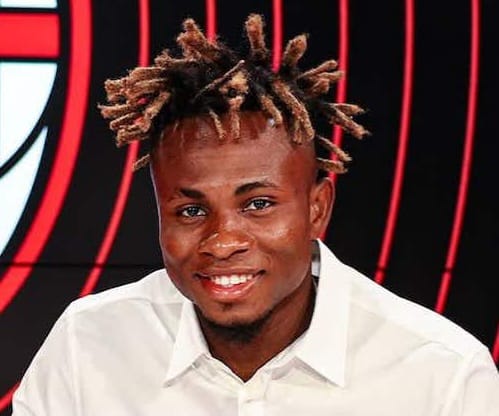
What was your primary motivation to go into football administration?
I have always been a football enthusiast. I developed a passion for football quite early in life. But I did not stop at just being an amateur player or supporter of my favourite teams. I consumed football literature with the same passion – football history, football news from different clubs and associations across the world. So I became well-informed about transfers, scouting, talent management and football administration systems. And when the opportunity came for me to get involved in the system, I took it up like a vocation. Then I discovered that there are so many young men in Nigeria that are talented players and very passionate about building their career and growing professionally. But most of them lacked guidance, direction, motivation and empowerment. So I decided to take up the challenge to fill the gap by helping to create markets for football talent.
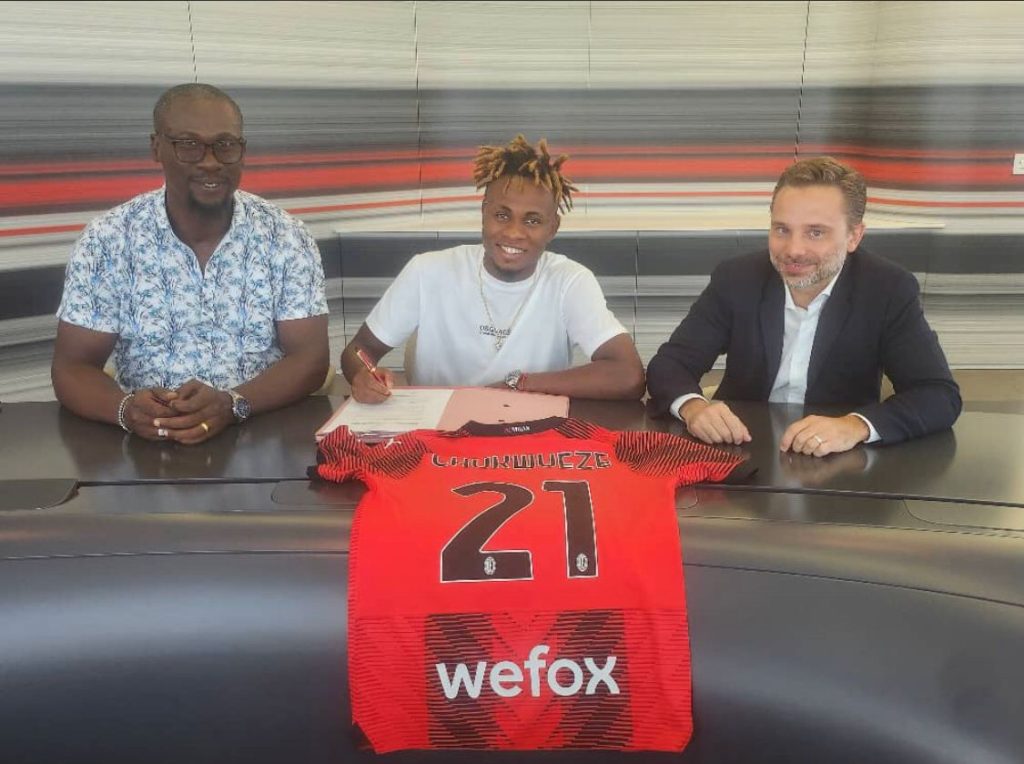
How did you start this journey? How easy or rough was it at the beginning?
Well, I started from the grassroots. I started from Diamond Football Academy. It was really challenging. We faced infrastructural challenges, financial challenges and the difficult issue of making people understand what we were doing. The concept of a football academy in our environment is relatively new. So when parents are preparing to send their child to school, and tell them that their child is talented and should rather join the football academy, they look at you with suspicion. But I thank God for where we are now. More and more people are beginning to appreciate what we are doing because they have seen that our boys are doing well locally and internationally.
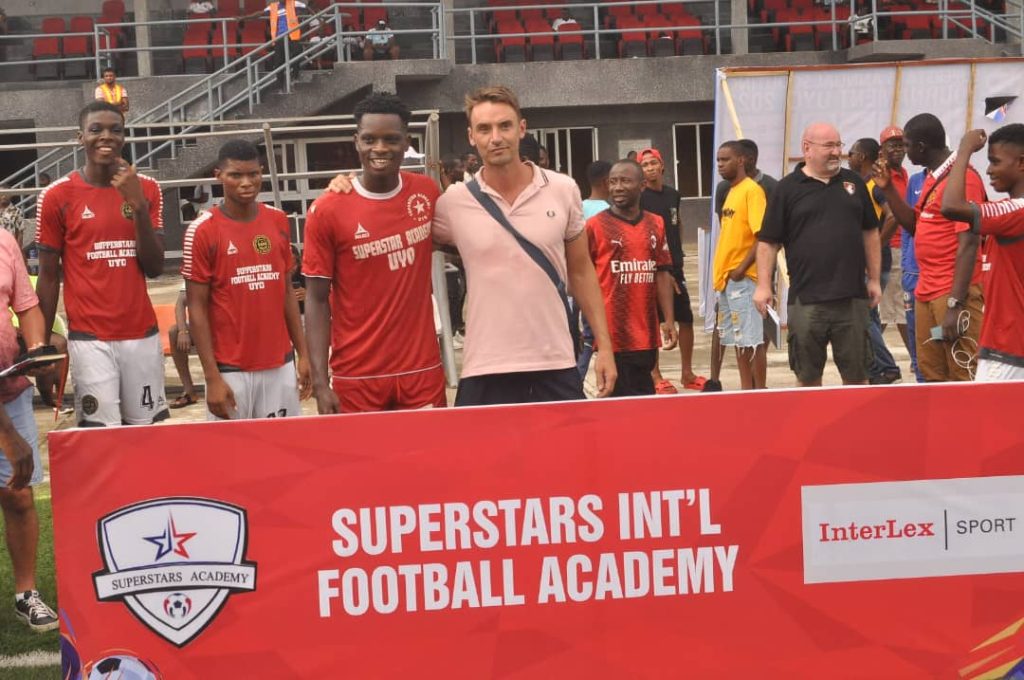
One of your most popular discoveries in football talent is Samuel Chukwueze who has risen to become an international star, currently playing for A. C. Milan. How did you discover Chukwueze?
Samuel was already playing street football and everybody that came across him knew he was a bunch of talent. But how to take the next step to brush up his talent and advance his career was a big challenge. Fortunately, our paths crossed when I was still with Diamond Football Academy and we were preparing to travel to Portugal for a match. All the players had been selected. Travel arrangements had been concluded. Then I got to know about Sammy and brought him to the team. The coach said he did not wish to accept anyone else because, like I said, the team was already complete. I pleaded and insisted that Sammy be given a chance during one of our training sessions. Surprisingly, after the training, the coach approached me and said ‘this is the player I’ve been looking for’. He was willing to make the necessary changes to enable Sammy be on the team. This would tell you the level of talent we found in him.
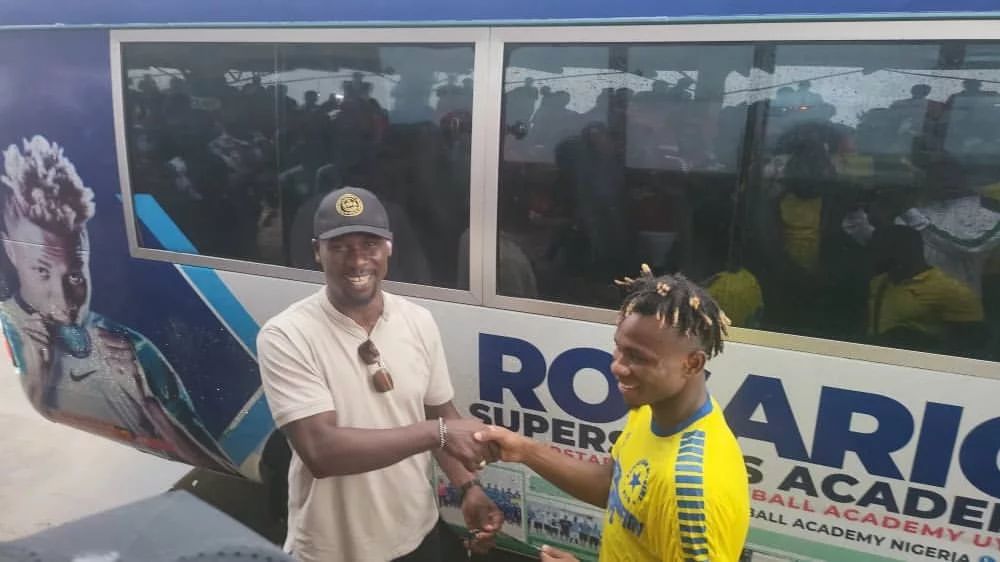
What was the next step in building his career?
At the tournament in Portugal he was the highest goal scorer and best player. That was in 2013. When we returned we continued giving him all the support he needed to strengthen his confidence. We tried also to expose him to key opportunities in his career path, until he joined the Under 17 National Team and eventually won the Under 17 World Cup. Today, he’s a member of our national team, the Super Eagles.
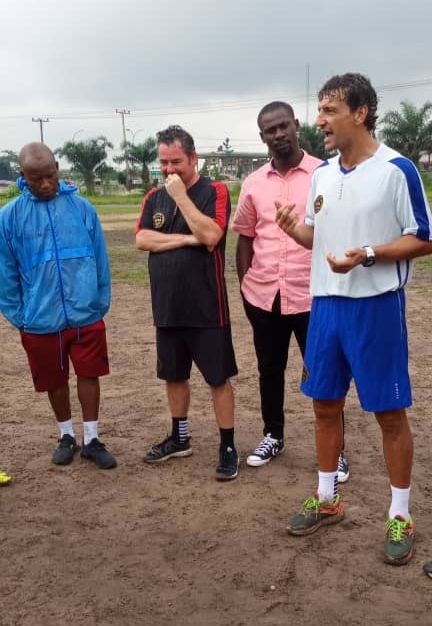
What was the effect of that victory for him, for you and your academy?
The effect was huge. For him, it became a strategic springboard to higher accomplishments. It brought tremendous joy to his family, friends, community and well-wishers. For me, I felt fulfilled that the efforts invested in grooming him had paid off. For the Academy, people began to take it more seriously, convinced that attending a football academy could open the floodgates to success. They began to see that there was just a thin line between football and mega success.
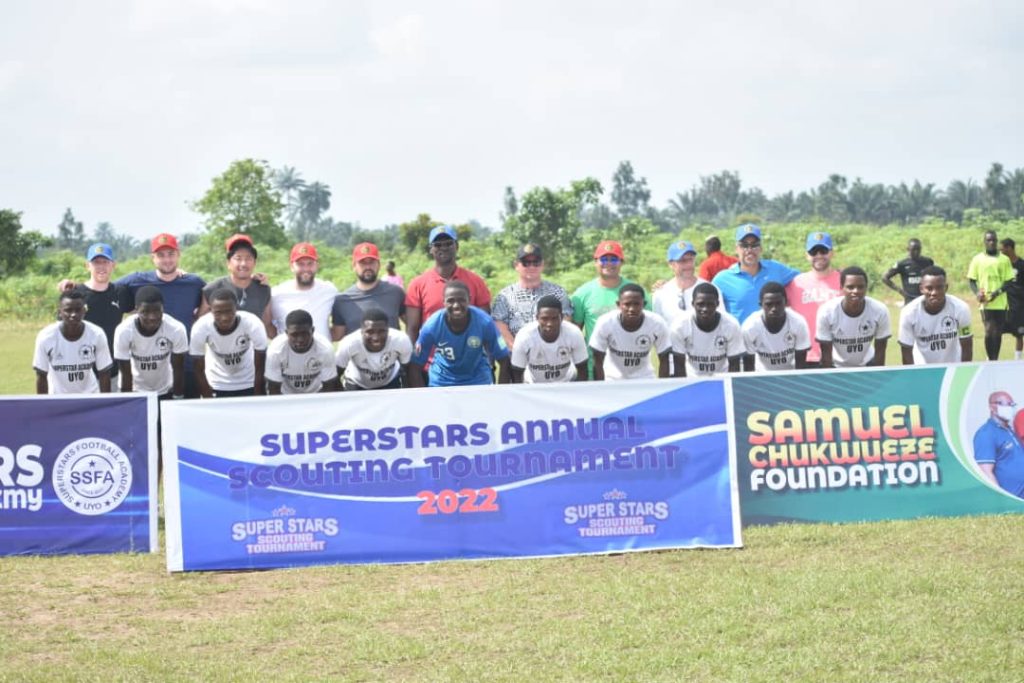
In the years following his breakthrough to international fame, what can you say about his conduct both as a super-star and in his relationships with people?
Oh…Sammy has remained committed to the values of humility and honesty. He is so simple and unassuming that if you never knew him before, you’ll never believe, upon meeting him, that he’s an international celebrity. That’s the part of him I have come to admire specially. He has not forgotten his roots. And he continues to work hard like one who is chasing after success afresh. I think he’s a role model in his own right. He has shown a rare understanding that success is not just about the first step or the second step or the third step, but it is about every step of the journey. Every step! If you relax after any step, you may not get to the next. And when you get to the top, you have to remain disciplined and keep working hard, else you’ll be displaced. These are the lessons from my experience with Samuel Chukwueze.
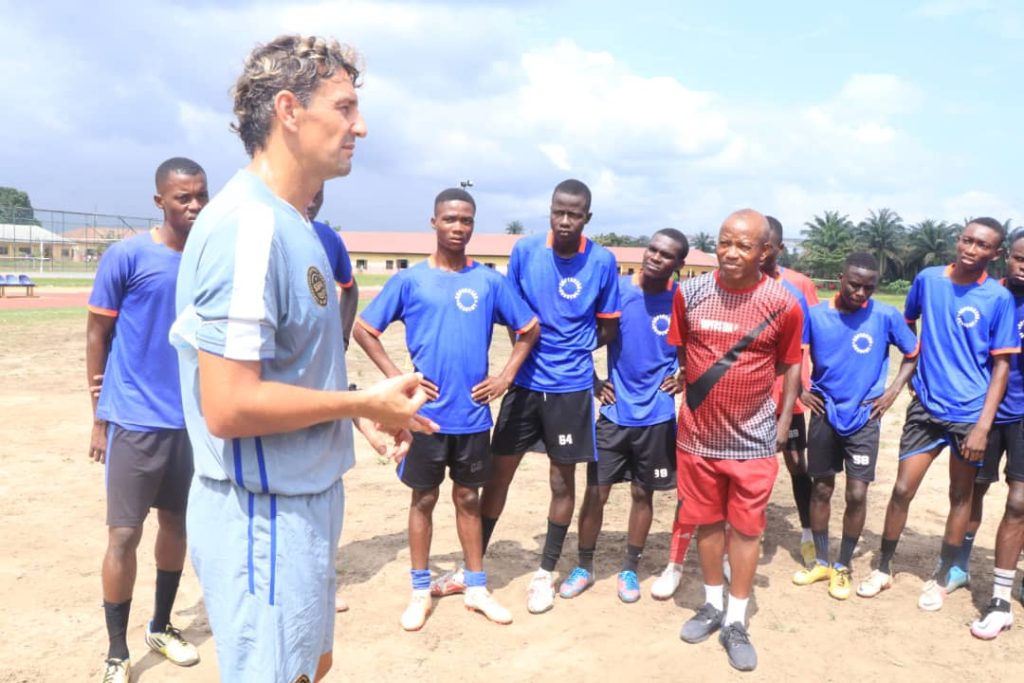
You run two football academies – Superstars Football Academy and Foster International Football Academy. How has it been, running these two institutions? Again, apart from Chukwueze, are there other talents you have successfully groomed?
It has not been easy, but we never expected it would be easy. I do not allow obstacles overwhelm me. Rather I bulldoze obstacles and to make a way if I can’t find a way. So, we have made remarkable progress since 2017 when we started. Apart from Chukwueze we have groomed talents that are now doing well professionally in Europe and America. We have also created a lot of awareness in football talent development and set standards that have earned us the respect of our international partners, especially in Europe and America. We have our tournaments every year during which our partners come from all over the world to harvest new talents. Our flagship tournament is the Superstars International Tournament that holds in Uyo, Akwa Ibom State, every November.
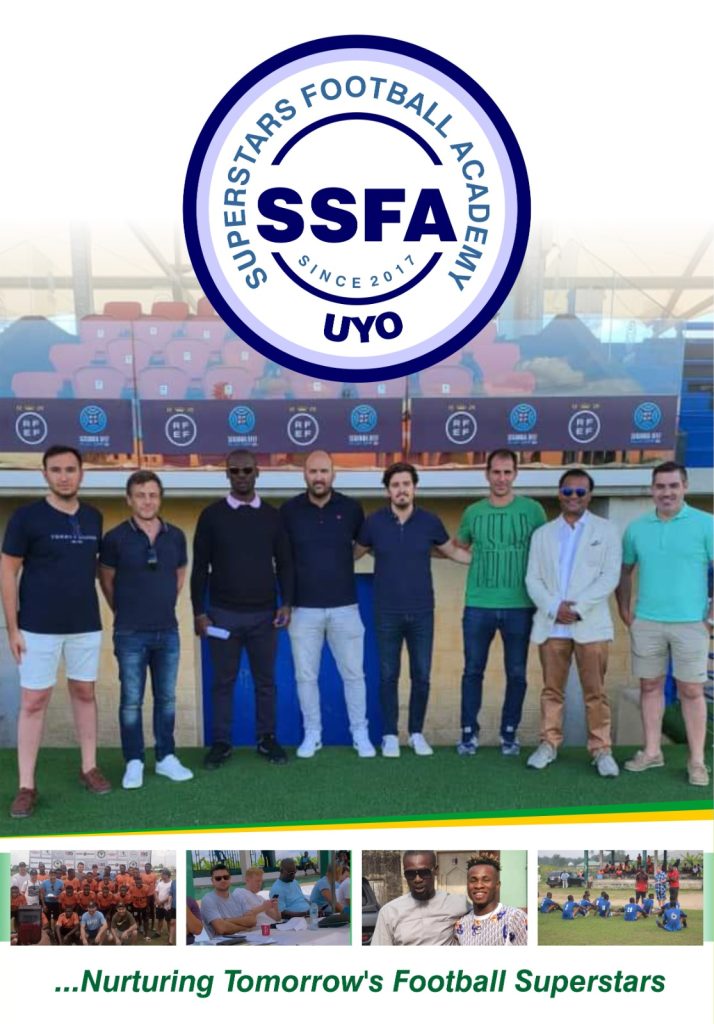
For the benefit of those who may wish to join, what are the requirements for joining Superstars Football Academy?
The key requirements are your talent, self-discipline, medical fitness and, of course, the consent of your parents or guardians. Membership is absolutely free. We also take care of accommodation, feeding and other personal needs free of charge.
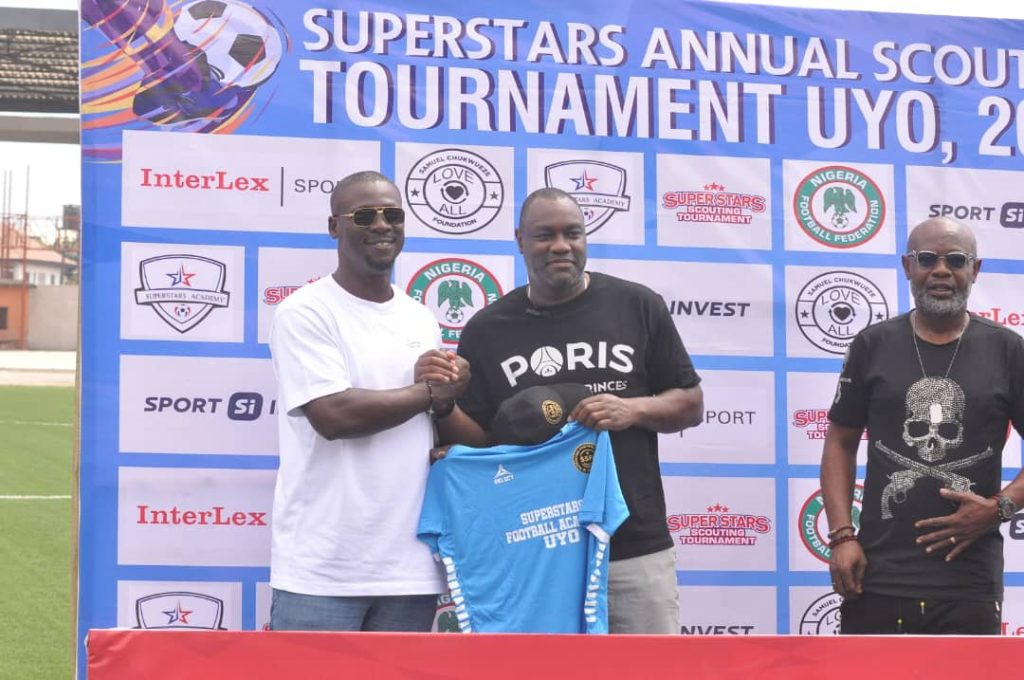
How do you cope with the huge financial costs of running a professional football academy like a charity organization?
Well, from my experience as a talent developer, I have come to discover that most talented footballers at this level come from very poor families. They are street footballers. In most cases, their families cannot even provide them with football boots or jerseys, which are among the most basic needs for training. So when we are convinced that such young boys are really talented, we are moved by our passion to impact positively in their lives and see them become success stories from zero levels. We derive deep satisfaction from seeing them grow and become useful members of society.
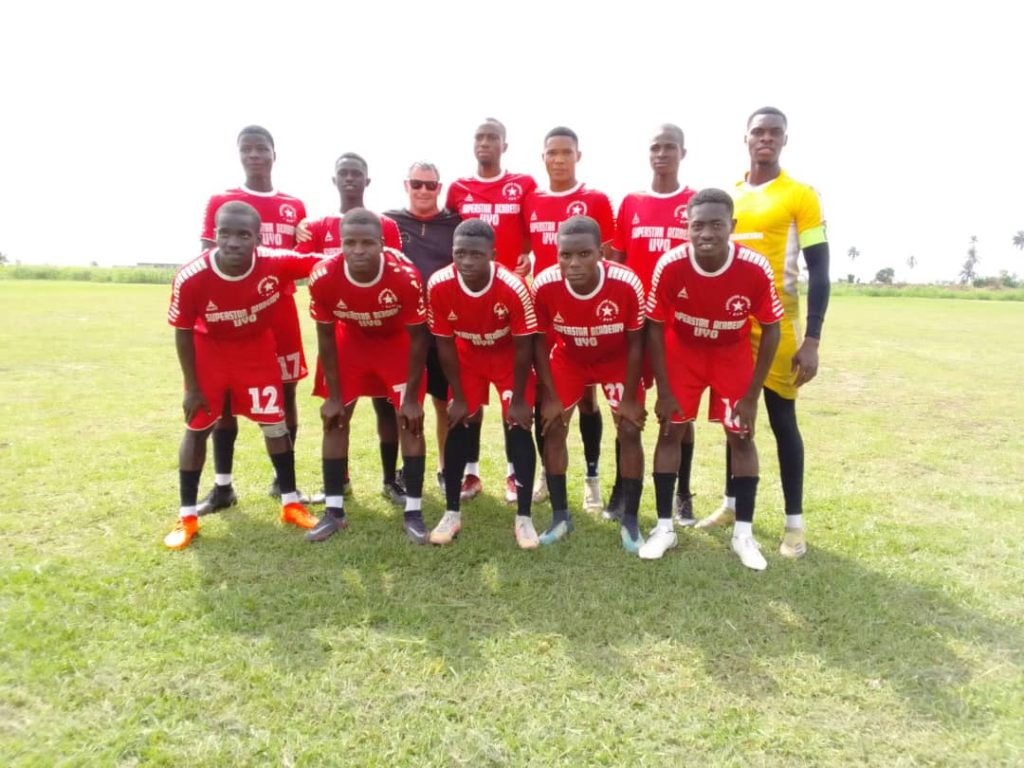
Apart from regular training sessions on the pitch, do you also expose them to educational opportunities?
Yes. We have educational consultants who come to the camp regularly to teach them in various subjects. Some of them also attend school and come to the camp basically for training. There are others who have concluded with basic education (primary and secondary schools) and are willing to continue schooling when they get into professional football.
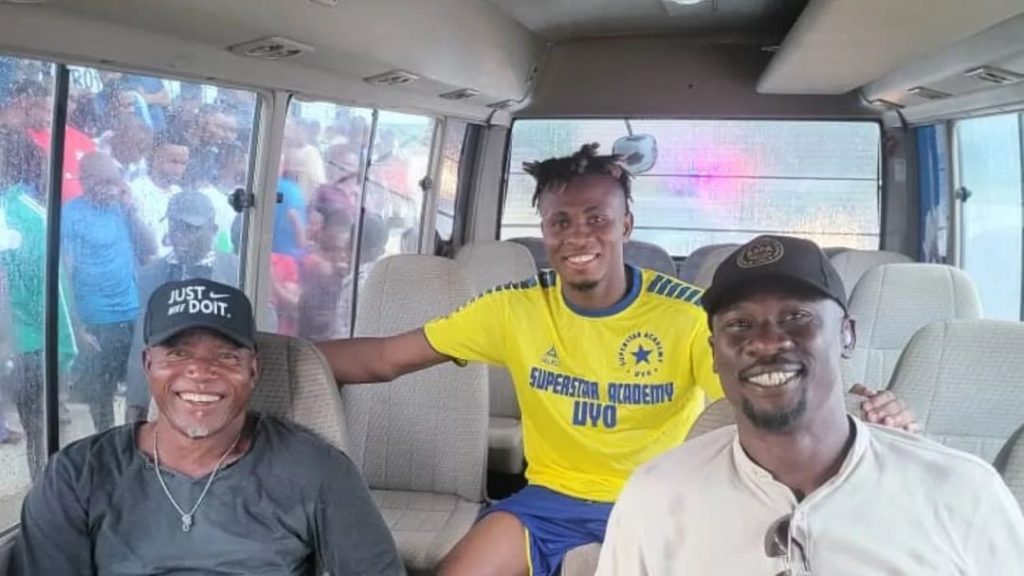
Do you have female footballers in your academies? As a seasoned football administrator, how do you see the future of female football in Nigeria?
At the moment, no. But we are looking at the prospects. Female football has come to stay. Male or female, football is basically the same – the same ninety minutes play time, the same size of pitch, the same rules. So there’s no dichotomy. Football has gone beyond being just a game or a sporting event. It is a life changer, and female football is growing exponentially across the world. Its future is very bright in Nigeria especially if we do what it takes to adequately promote it.
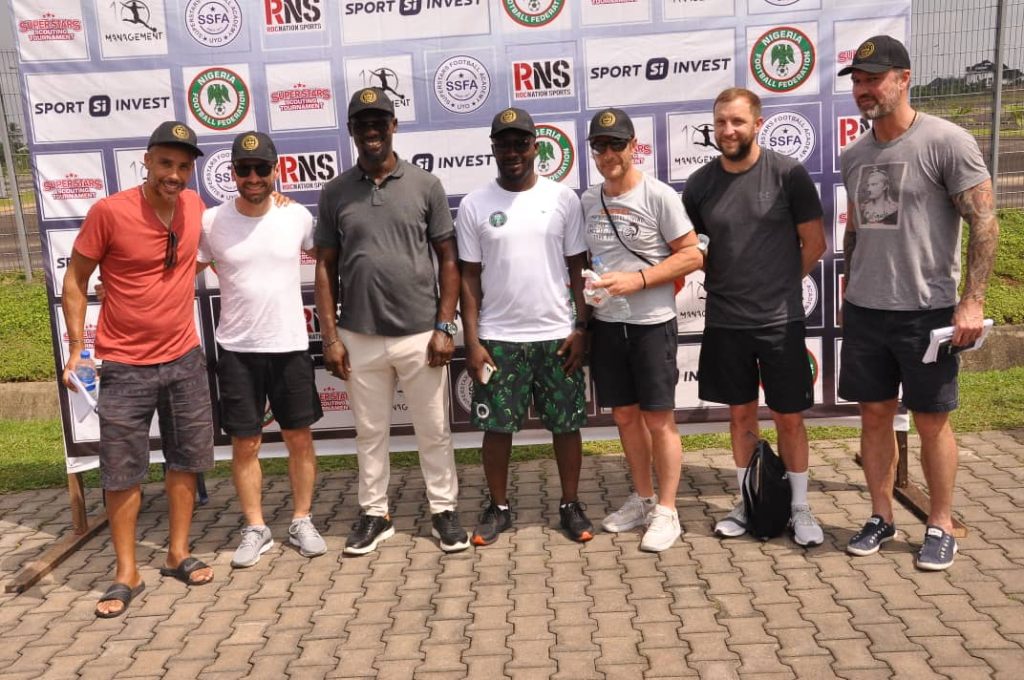
You are a member of the Nigerian Football Federation (NFF) Youth Football Academy Committee. What has been your experience?
It has been a very rewarding experience. I have been further exposed to issues affecting football development in Nigeria. I must be honest to say that the challenges are multi-faceted and huge. But the NFF Board is doing its best to surmount these challenges and strengthen its organs for seamless football administration and greater achievements for the country. I have confidence in the leadership of the Board.
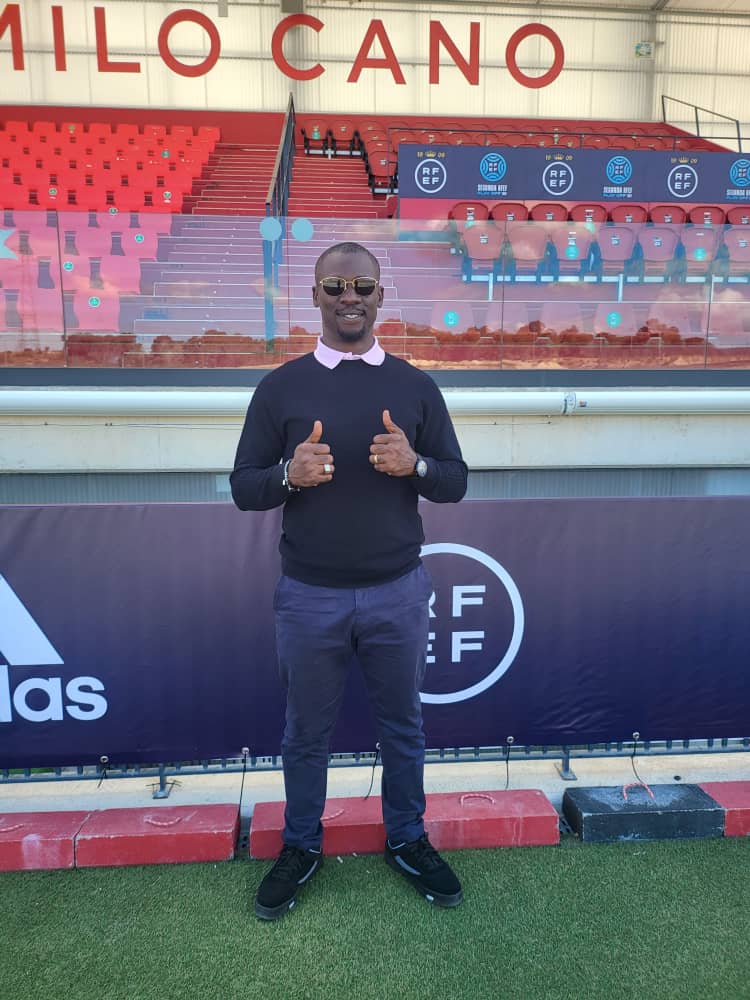
Let’s look at football as sports, football as entertainment and football as business. From your perspective, how are we fairing in Nigeria compared to other parts of the world, and in which areas do we need improvement?
The global sports industry, particularly the football sub-sector, has experienced extraordinary growth over the years. Nigeria as the most populous Black nation on earth should be able to set standards or, at least, flow in tandem with the trends in football development. Looking at football as sports, we may not have done badly, but that is basic. Football has always been sports at its basic level. The world has gone beyond that. There are now many angles to football. We are yet to adequately harness its entertainment and business angles, as you mentioned, mainly due to poor infrastructure and security. Football now powers a global ecosystem that guarantees livelihood for millions of people. Just as our government has been campaigning for the growth of non-oil economy, some major cities of the world are now driven by football economy. For instance, nothing has boosted international sports tourism more than football tournaments. We need to invest in our stadia and make them very comfortable, with functional facilities. This also includes the pitch, to enable players express themselves totally. We must also upscale our welfare system both for players and officials. Our officiating systems must be superb and unimpeachable. And we cannot over-emphasize the role of security in football tournaments. A combination of these factors would boost the confidence of both players and investors, and help us to keep improving the sector in line with global standards.
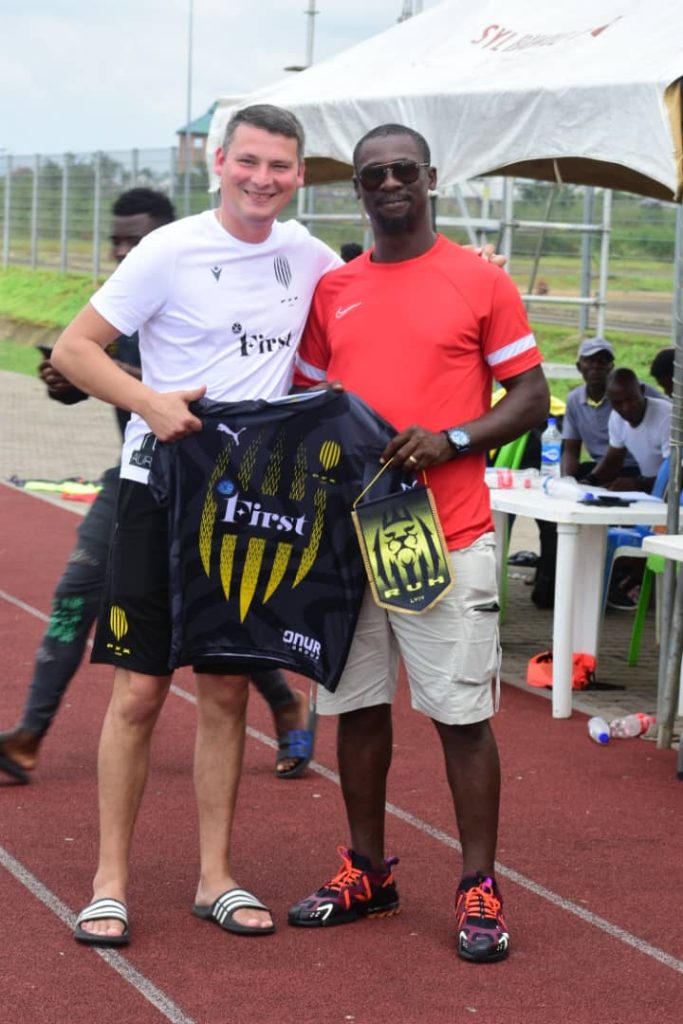
What is your advice to parents and young persons aspiring to become professional footballers?
Parents should allow their talented children build their talents and express their passion. We have so many potential superstars, not only in football but in other areas, whose dreams may be stillborn because parents do not encourage them. On the part of young people, they must be disciplined and humble to be able to express their talents. Talent alone is never enough. Mentorship and training are essential and these call for discipline and humility.
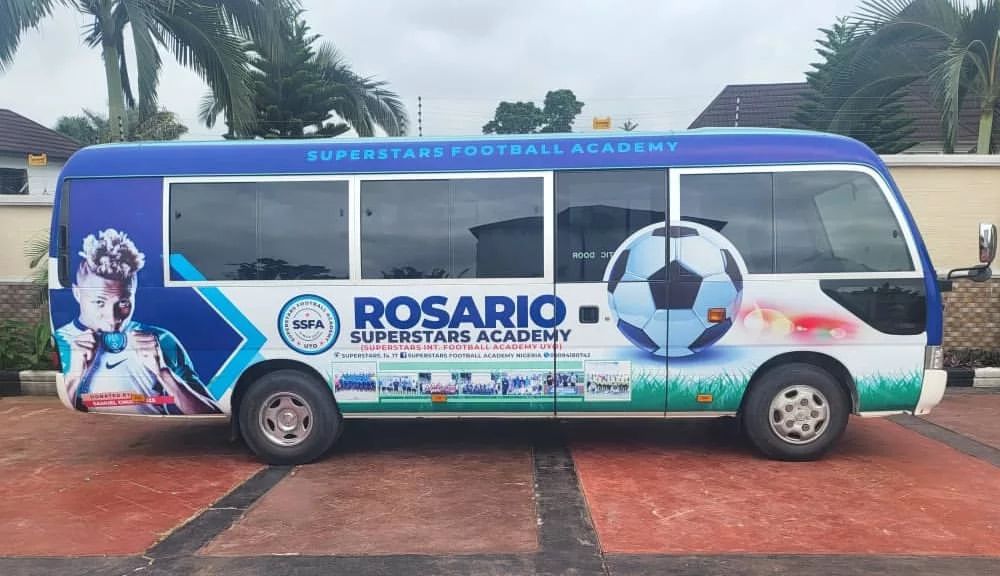
Thank you for your time, sir.
Thank you too. I wish Ojemba magazine success in its future endeavours.













